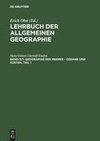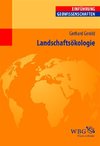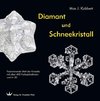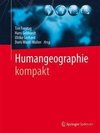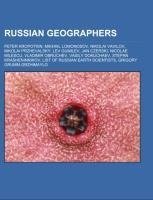
-
 Anglický jazyk
Anglický jazyk
Russian geographers
Autor: Source: Wikipedia
Source: Wikipedia. Pages: 28. Chapters: Peter Kropotkin, Mikhail Lomonosov, Nikolai Vavilov, Nikolai Przhevalsky, Lev Gumilev, Jan Czerski, Nicolae Milescu, Vladimir Obruchev, Vasily Dokuchaev, Stepan Krasheninnikov, List of Russian Earth scientists, Grigory... Viac o knihe
Na objednávku
13.23 €
bežná cena: 14.70 €
O knihe
Source: Wikipedia. Pages: 28. Chapters: Peter Kropotkin, Mikhail Lomonosov, Nikolai Vavilov, Nikolai Przhevalsky, Lev Gumilev, Jan Czerski, Nicolae Milescu, Vladimir Obruchev, Vasily Dokuchaev, Stepan Krasheninnikov, List of Russian Earth scientists, Grigory Grumm-Grzhimaylo, Pyotr Semyonov-Tyan-Shansky, Daniel Gottlieb Messerschmidt, Lev Berg, Philip Johan von Strahlenberg, Leopold von Schrenck, Dmitry Nikolayevich Anuchin, Yuly Shokalsky, Pavel Polian, Yevdokim Zyablovskiy, Kozma Spassky-Avtonomov, Voin Rimsky-Korsakov, Alexander Kruber, Nikolai Korzhenevskiy, Tatyana Ustinova, Stanislav Kalesnik, Johann Gottlieb Georgi. Excerpt: Prince Pyotr Alexeyevich Kropotkin (Russian: ; 9 December 1842 - 8 February 1921) was a Russian zoologist, evolutionary theorist, geographer and one of the world's foremost anarcho-communists. Kropotkin advocated a communist society free from central government and based on voluntary associations between workers. Because of his title of prince, he was known by some as "the Anarchist Prince". Some contemporaries saw him as leading a near perfect life, including Oscar Wilde, who described him as "a man with a soul of that beautiful white Christ which seems coming out of Russia." He wrote many books, pamphlets and articles, the most prominent being The Conquest of Bread and Fields, Factories and Workshops, and his principal scientific offering, Mutual Aid: A Factor of Evolution. He also contributed the article on anarchism to the Encyclopædia Britannica Eleventh Edition. Peter Kropotkin was born in Moscow. His father, Prince Alexei Petrovich Kropotkin, owned large tracts of land and nearly 1200 "souls" (male serfs) in three provinces. Kropotkin's male line traced to the legendary prince Rurik; his mother was the daughter of a Russian general. "nder the influence of republican teachings," he dropped his princely title at the age of twelve, and "even rebuked his friends, when they so referred to him." In 1857, at age 15, Kropotkin entered the Corps of Pages at St. Petersburg. Only 150 boys - mostly children of nobility belonging to the court - were educated in this privileged corps, which combined the character of a military school endowed with special rights and of a court institution attached to the imperial household. Kropotkin's memoirs detail the hazing and other abuse of pages for which the Corps had become notorious. In Moscow, Kropotkin had developed an interest in the condition of the peasantry, and this interest increased as he grew older. In St. Petersburg, he read widely on his own account, and gave special attention to the works of the French encyclopædists
- Vydavateľstvo: Books LLC, Reference Series
- Rok vydania: 2020
- Formát: Paperback
- Rozmer: 246 x 189 mm
- Jazyk: Anglický jazyk
- ISBN: 9781157415732
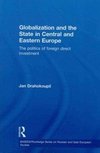




 Nemecký jazyk
Nemecký jazyk 

